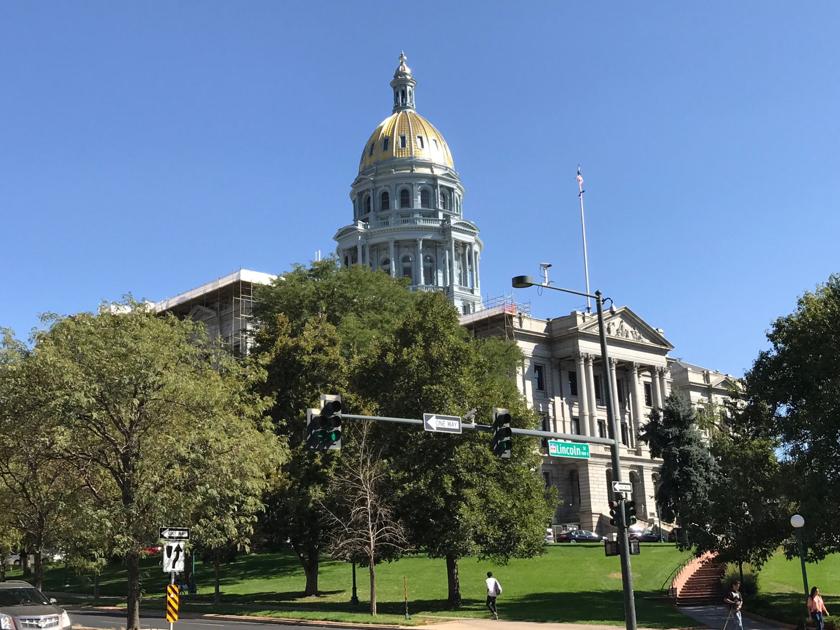
After concerns from the left sparked an audit investigating state spending on administrative expenses stemming from pandemic relief bills passed during the 2020 special session, a report released Tuesday shows the six programs in question are set to undergo statutorily mandated expense limits.
Lawmakers convened last fall to pass five bills sending nearly $180 million to a total of five agencies for eight programs designed to address the economic fallout from COVID-19 in housing, child care, education and small business relief, among others. Of those eight programs, six included mandatory administrative spending caps, which ranged from $375,000 to $1.8 million based on the size of the allocation.
The Office of the State Auditor in March launched an audit requested by Sen. Kerry Donovan, who was not a member of the Legislative Audit Committee but was empowered to request the examination under committee rules.
According to auditors, the Vail Democrat felt “that since Coloradans are having to do with less, state agencies should do likewise” in terms of tightening the belt on the costs to administer the programs.
According to auditors, that’s exactly what happened.
“We observed during the audit that state agencies were underspending their admin expense allocations in order to maximize the amount of relief aid going to individuals and businesses,” auditor Dana Berry told the LAC on Tuesday.
Berry reported the audit — which was complicated by the fact that spending on the programs in question is still ongoing — found each of the six programs with administrative cost caps are projected to come in under the limits set in law by the original bills. Those limits govern spending by both agencies and nonprofit organizations or local governments that agencies chose to partner with.
In total, the OSA report projects the six programs with administrative spending limits will combine to come in more than $2 million under the combined $6.9 million cap. Those programs included:
- Emergency Housing Assistance administered through the Department of Local Affairs, which is projected to come in $300,000 under its cap of $1.7 million;
- Child Care Provider Assistance administered through the Department of Human Services, which is projected to squeeze in $7,300 under its cap of roughly $1.5 million;
- Small Business Relief Program administered through DOLA, which auditors anticipate will see just $700,000 spent out of a possible $1.8 million allowed to be used on administrative expenses by the state and grantees;
- Connecting Colorado’s Students Grant Program administered through the Department of Education, which is expected to spend $22,000 on administrative costs out of an allowed $400,000;
- Colorado Arts Relief Fund administered through the Governor’s Office of Economic Development and International Trade, which is projected to come in $228,500 under its $375,000 cap;
- Food Pantry Assistance Grant Program administered through DHS, which is projected to come in $8,300 under its cap of just over $1 million.
The final two programs approved during last year's special session, the Disproportionately Impacted Businesses Relief Program and the Eviction Legal Defense Program, did not include administrative spending caps.
A further review of spending on administrative costs by OSA also determined that those expenses fell within state fiscal rule standards of being reasonable and necessary.
The audit also tracked projected program spending and concluded that a projected $24 million is set to be leftover. Almost all of that funding projected to be unused, some $22 million, comes from DOLA’s Small Business Relief Program.
The report highlighted several factors blocking local governments that partnered with the state on the program from distributing the funds.
“This included small businesses not meeting the statutory criteria that limited the types of businesses that could receive aid, and some businesses choosing not to apply for relief aid because they focused their limited resources on other relief programs such as the federal Paycheck Protection Program,” the report said, noting three local governments that applied for and received funds did not have any qualified applicants apply.
Depending on the statutory language authorizing the program, the unspent funds will either be returned to the state’s general fund or rolled over in the program’s budget.
But while the Small Business Relief Program is expected to return the largest sum, the projected $800,000 left unspent by the Judicial Department’s Eviction Legal Defense Program drew the most ire from the panel.
Sen. Julie Gonzales, D-Denver, said she was “frustrated and disappointed” that a misinterpretation of the bill’s legislative intent hamstrung one of the grantees, resulting in the return of nearly all of the original grant.
“I'm hoping that in future opportunities to work together on this, that we can ensure that we are all clear on the legislative intent of these programs, because the impact of this is that fewer people across the state in the midst of a pandemic had the opportunity to receive legal counsel,” she told state court administrator Steve Vasconcellos.
Vasconcellos countered that while the grantee may be frustrated, "if you look at actually spending, I think it's harder to make an argument of actual harm."
"impact" - Google News
September 29, 2021 at 02:00AM
https://ift.tt/3F40EVM
Audit: State cut administrative costs to 'maximize' impact of Colorado's pandemic relief dollars - coloradopolitics.com
"impact" - Google News
https://ift.tt/2RIFll8
https://ift.tt/3fk35XJ
Bagikan Berita Ini















0 Response to "Audit: State cut administrative costs to 'maximize' impact of Colorado's pandemic relief dollars - coloradopolitics.com"
Post a Comment